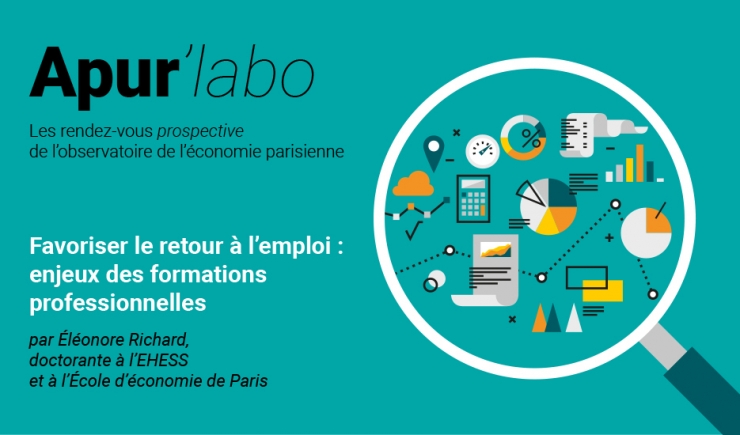
Éléonore Richard, who is currently pursuing a PhD at the Chaire Travail of The Paris School of Economics and at the School of Advanced Studies in the Social Sciences (EHESS), proposes a revue of the literature on professional training and career change, retraining policies for the unemployed. In France, the multiplicity of operators and tools renders training and retraining policies particularly difficult to assess in a rigorous manner. However, the references analysed show that in the medium and long-term, training programmes seem to enable access to more stable and better paid jobs.
At an international level, the literature review shows a lack of consensus on the effectiveness of training leading to people returning to work. Germany and the Scandinavian countries give preference to short training courses and vocational programmes. In the United States, sectorial training seems to be the most efficient. In Switzerland and Great Britain the benefits of employment subsidies are reported to be greater than those of training courses.
Some lines of public action are proposed as a conclusion. They focus on improving access to training (concerning quality of training for employers and job openings for trainees), the inclusion of people removed from training opportunities and the setting up of indicators to allow the effects of training courses on the return to work, and the professional paths of those who benefit, to be considered objectively.
This document is a contribution to the the Economic Forecasting Lab of the Observatory of the Parisian Economy.
The Observatory, put in place by Apur in partnership with the City of Paris’ Department of Attractiveness and Employment (DAE) is devoted to analysing specific aspects of the Parisian economy and to evaluating the impact of the Covid-19 crisis on businesses, employment, job demand and the effects of support measures. This process is carried out by monitoring and analysing economic trend data (Part 1), and by carrying out in-depth thematic research in liaison with the Observatory’s partners (Part 2).
The Observatory also aims to develop forward-looking thinking to support recovery, to anticipate changes in the economy and to imagine ways to develop that will enhance the future. In this spirit, the Economic Forecasting Labo (Part 3) is based on contributions made by researchers and experts.
It is in the context of this third part that a first series of contributions has been established around three main themes: the financial structure of a city over a 20 time horizon, new, strategic economic sectors and the fight against inequality as a factor of development in territories. The present literature revue on the assessment of vocational training and retraining is included in this third theme.
The challenges of professional training and retraining to promote a return to work - The point of view of Éléonore Richard.


